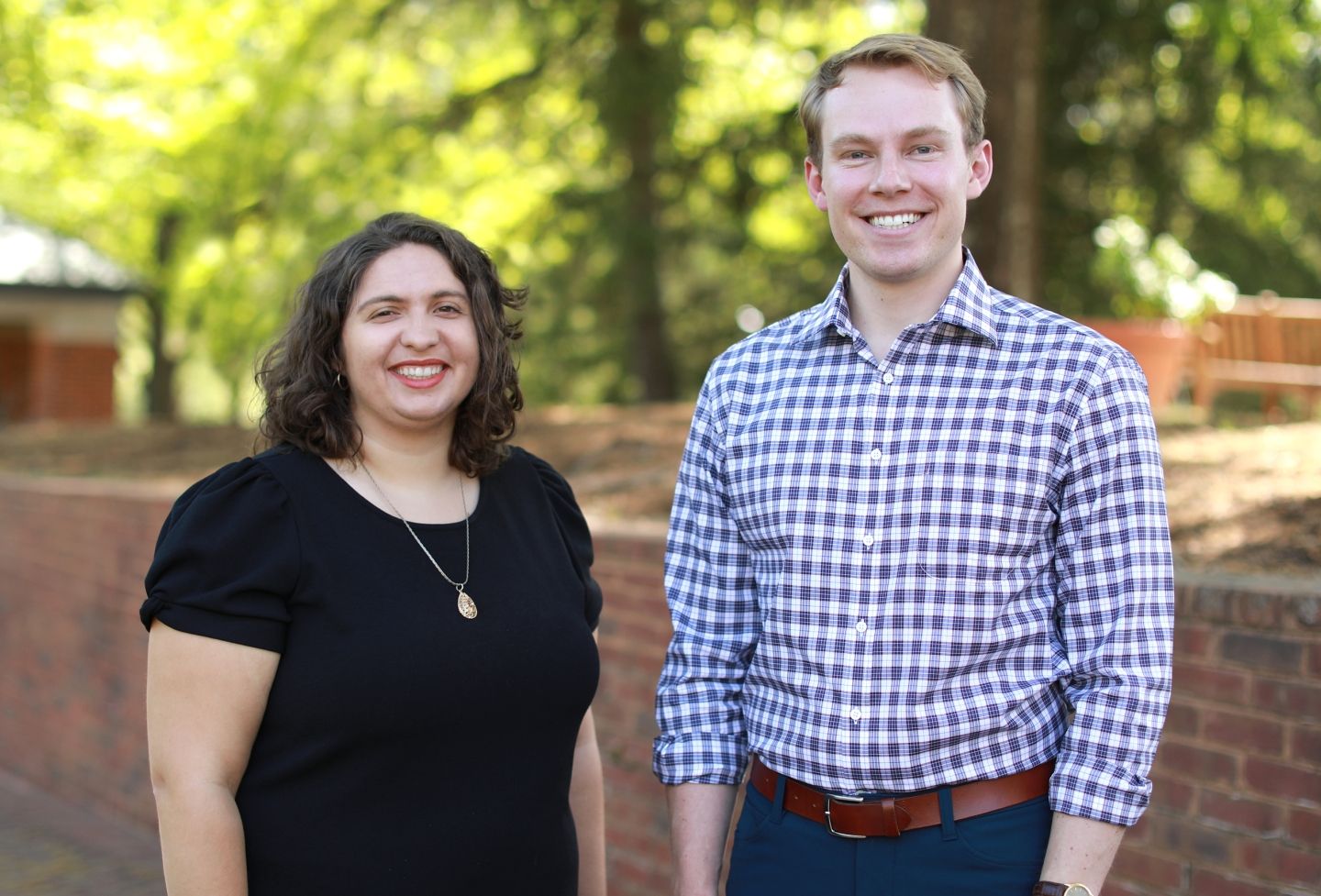“None of it is going to last forever.” As more than 300 new University of Virginia law students sat attentively in their Caplin Auditorium seats for orientation, Judge Toby Heytens ’00 used his final eight words to remind students to settle in, enjoy the bucolic beauty of Charlottesville and — most importantly — hold fast to every moment of the friendships built here.
Heytens, one of the newest judges on the Fourth U.S. Circuit Court of Appeals, has reached several peaks in his legal career, having argued multiple cases before the U.S. Supreme Court, taught law at his alma mater and served in the U.S. Solicitor General’s office and as Virginia’s solicitor general. He also graduated first in his class.
Rather than focusing on those experiences or on how he conquered law school, Heytens recounted his memories of the friendship that carried him through it — a friend he met in that same auditorium during a break from his own orientation activities. Heytens admitted to the audience that as his Civil Procedure exam approached, he confessed to his friend, Alex Karan ’00, that he didn’t understand personal jurisdiction, a principle at the very core of how judges like him determine whether a party should even be before him.
“This story is really funny in retrospect for multiple reasons, including the fact that I later ended up teaching Civil Procedure when I was a law professor — and when I taught Civil Procedure, I almost always tested on personal jurisdiction,” Heytens said. “But this was not funny at the time — it was quite scary.”
Karan taught Heytens the elements of the concept in 30 minutes.
Not only did having a smart and compassionate friend help him deal with his fear, but Karan, who had left a Ph.D. program in English to attend law school, also helped shape Heytens’ understanding of what it means to be a lawyer.
Of his decision to abandon the study of poetry and literature, Karan told Heytens, “‘There are some things that are worth studying, worth experiencing, worth doing for their own sake because they are beautiful and because they are the things that are worth living for,’” Heytens recalled. “But just like the prettiest chair in the world has failed as a chair if people can’t sit in it, […] the purpose of law is an intensely practical one, to help people navigate the world.”
In other words, just as a chair is ultimately about the people who need to sit in it, being a lawyer is about making sure people can use the law to improve their lives.
“Being a lawyer isn’t primarily about beauty or puzzles or intellectual stimulation,” Heytens said. “‘Being a lawyer,’ my friend said, ‘is always, always, always about people.’”
Heytens said he was able to hold onto that nugget of wisdom throughout his career, and he brought it up most recently as a way to highlight his humanity to those who interviewed him for the open seat on the federal bench.
Karan influenced Heytens to exercise and eat a healthy diet during law school and introduced him to the glory of hiking Humpback Rocks, which Heytens urged the new students to seek out. (It’s at milepost 5.8 on the Blue Ridge Parkway.)
Heytens noted that Karan was older (26 to Heytens’ 21 years), had an intense bearing, was a Belarusian immigrant and drove a giant former police cruiser he had bought at auction — beacon light still intact. He wouldn’t necessarily have gravitated toward Karan during that orientation break. Yet Karan approached him and became his “first, closest and most helpful law school friend.”
Just 11 years after law school graduation, Karan died before the age of 40. Heytens has held onto his memories and a picture of Karan studying on the floor of Heytens’ apartment. He wore one of Karan’s ties while delivering his orientation remarks.
“I encourage you to be open, not just to meeting new people, but people that at first seem different from you and who you might otherwise be reluctant to meet. I encourage you to find people that you can turn to when you have questions, especially the questions that you would be embarrassed if you asked anybody else. And there’s a corollary to that. I encourage you to be that person for somebody else,” Heytens said.
“I encourage you to remember that fresh air is important and that what you’re learning about and training to do here involves real people, real problems, no matter how abstract it seems,” he said. “And last but certainly not least, I encourage you to try as absolutely hard as you can to treasure your time here and the people that you get to have this experience with, because UVA Law School and Charlottesville are very, very, very special places and none of it is going to last forever.”
Law school, as Dean Risa Goluboff noted in her own remarks, “is never easy. That’s why they make movies about it and write books about it.”
But, she said, the journey will be worth it. “You have seen people talk about the gauntlet, but it will also be, I hope, exhilarating and energizing and intellectually stimulating and empowering and very, very rewarding,” Goluboff said.
Natalie Blazer ’08, assistant dean for admissions and chief admissions officer, discussed in her welcome remarks some of the ways law school is hard and what makes Virginia Law a special place to forge one’s strengths.
“This weekend, when you start reading for class next week, you’re going to get to a case you don’t understand — I guarantee it,” Blazer said. “Your brilliant classmates are going to talk in class and you’re going to think, ‘Everyone in here is smarter than me.’”
Rather than “shrinking down” or “zoning out,” Blazer said, “that’s the time to pay attention, take notes and learn.”
The harder moments, she said, may be the moments when a classmate says “something that feels like it’s attacking who you are at your core.”
Blazer encouraged the students to stay in the moment, actively listen and remember that no person’s voice or viewpoint is more worthy than anyone else’s.
“This is Virginia Law, and we’re not afraid of feeling uncomfortable and doing things the hard way,” Blazer said. “Being a lawyer is about disagreeing — all the time — but respectfully and with the goal of understanding.”
Rather than giving up or shouting each other down, Blazer said to remember the reason they are here.
“That reason is to be a Virginia lawyer. A Virginia lawyer listens, respects others, uses their own brain, works dang hard and then crushes the opposition,” Blazer said. “Welcome to Virginia, y’all.”
Scenes From Orientation
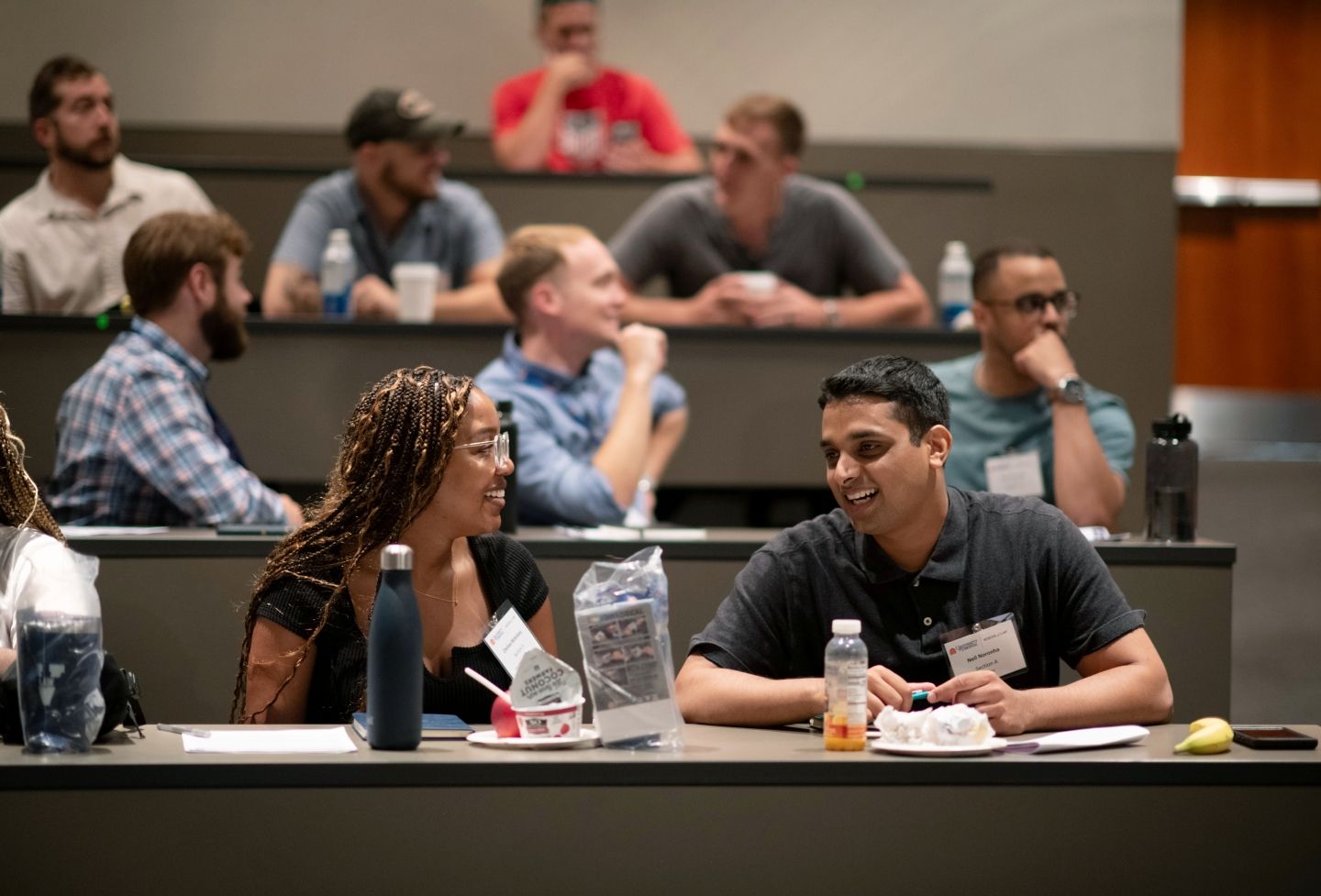
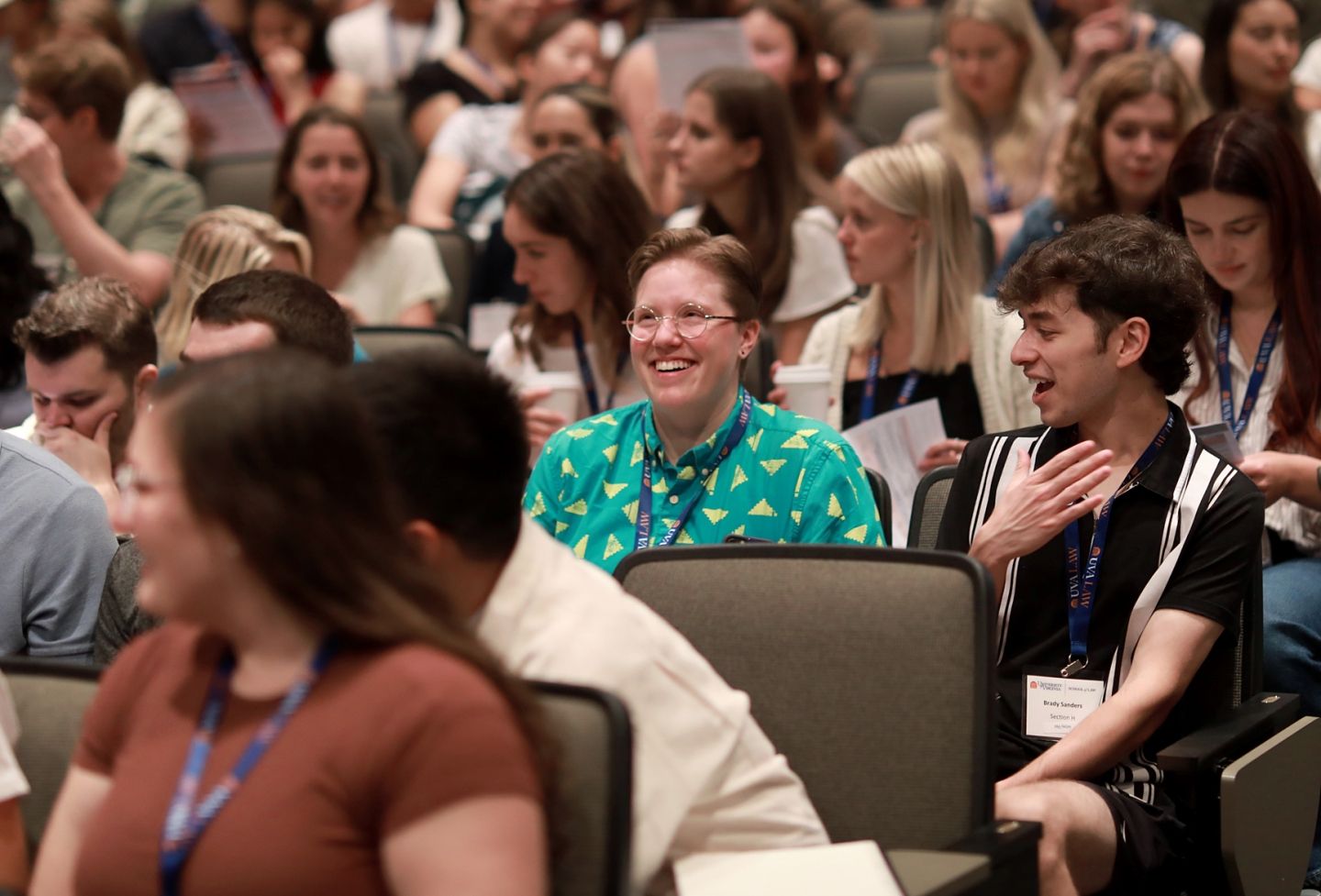
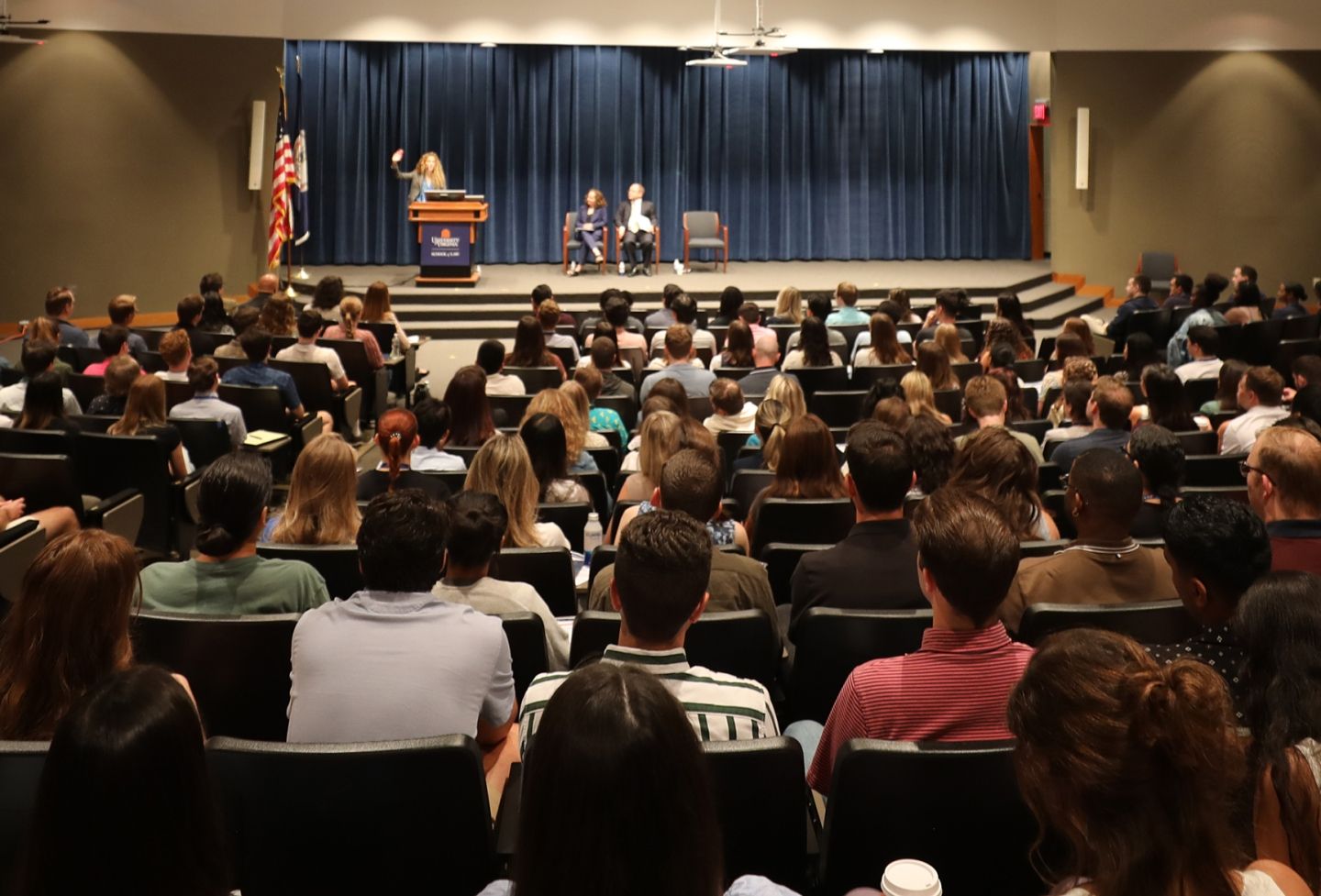
Assistant Dean Natalie Blazer ’08 welcomes students at orientation in Caplin Auditorium.
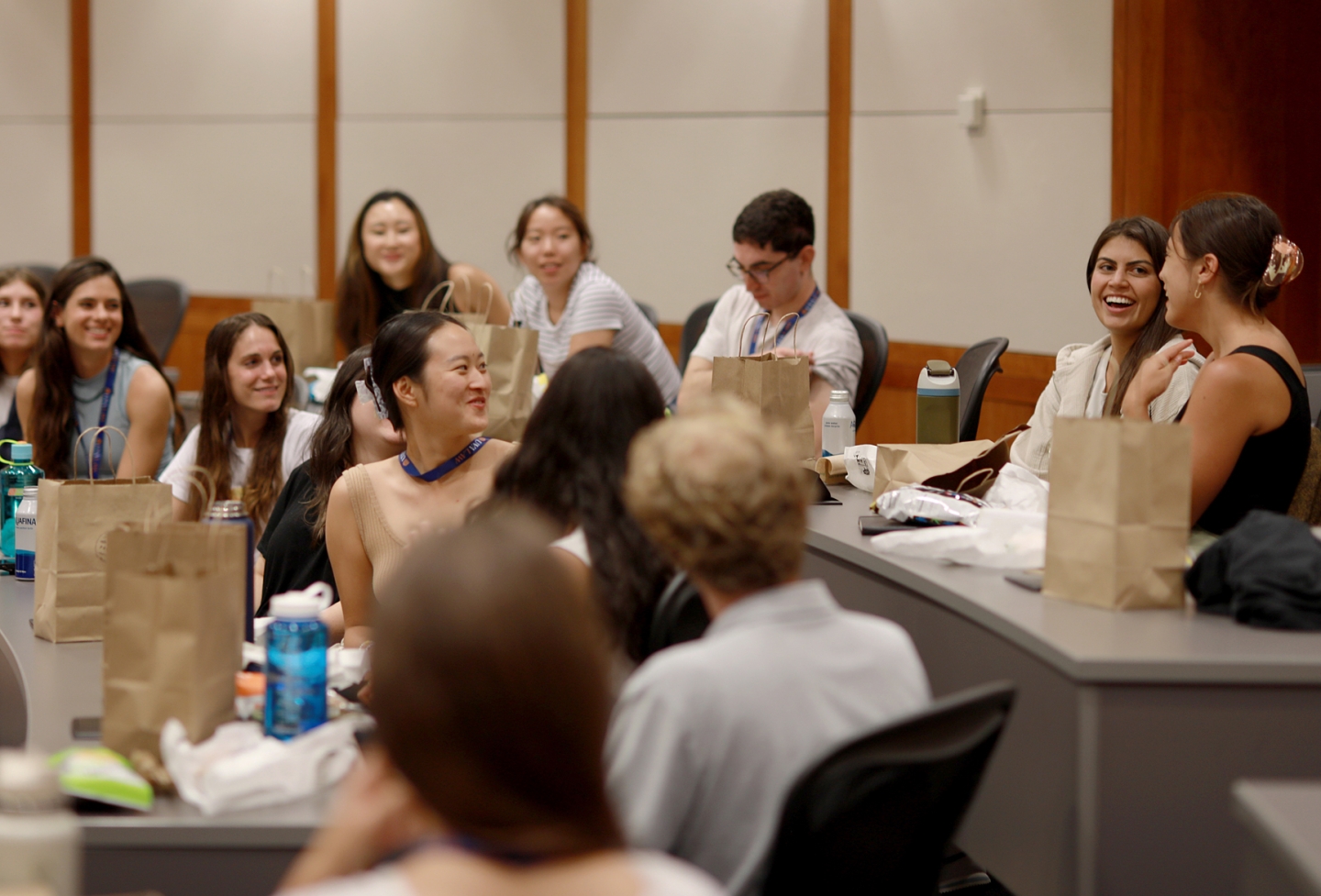
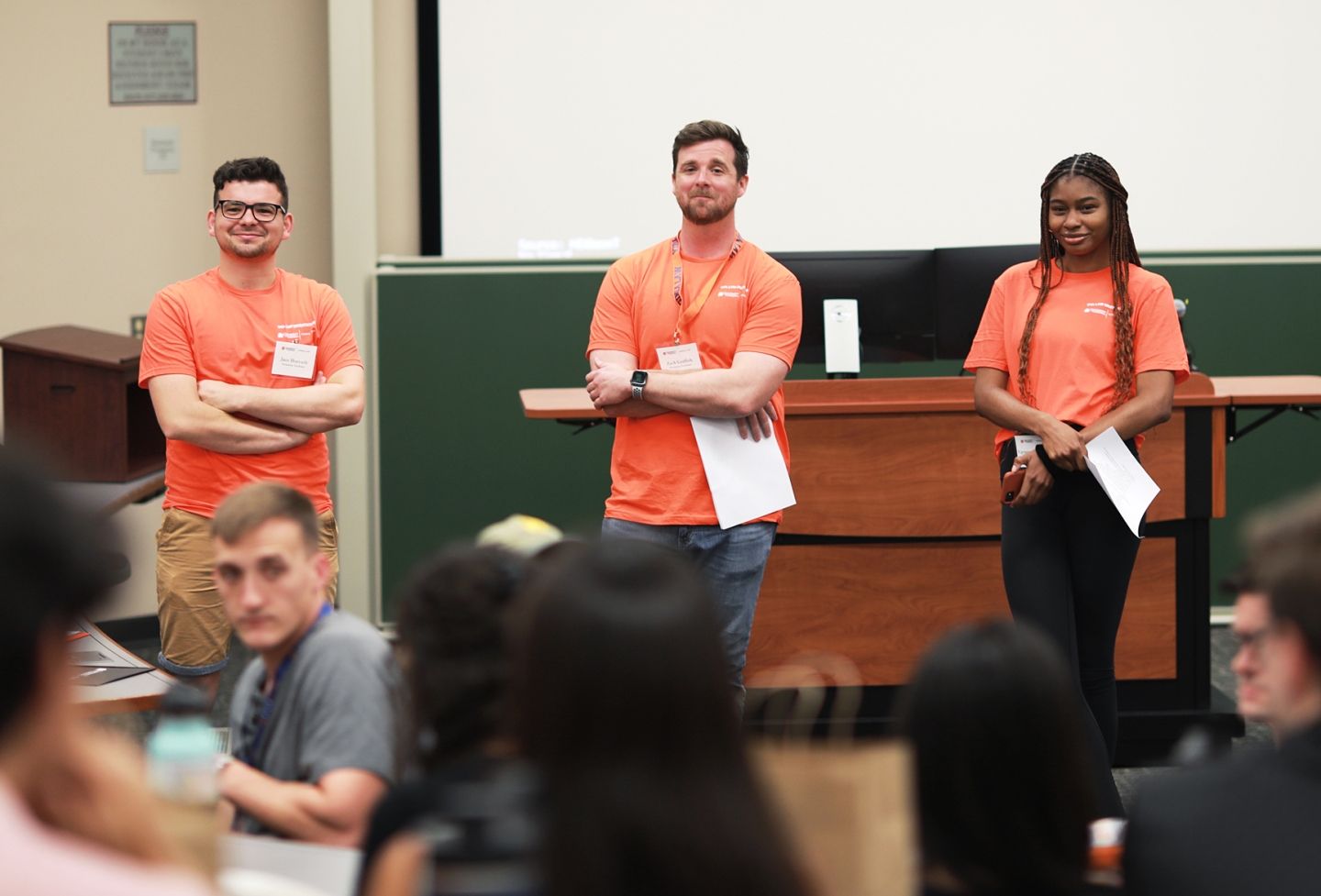
Peer Advisors meet with new students.
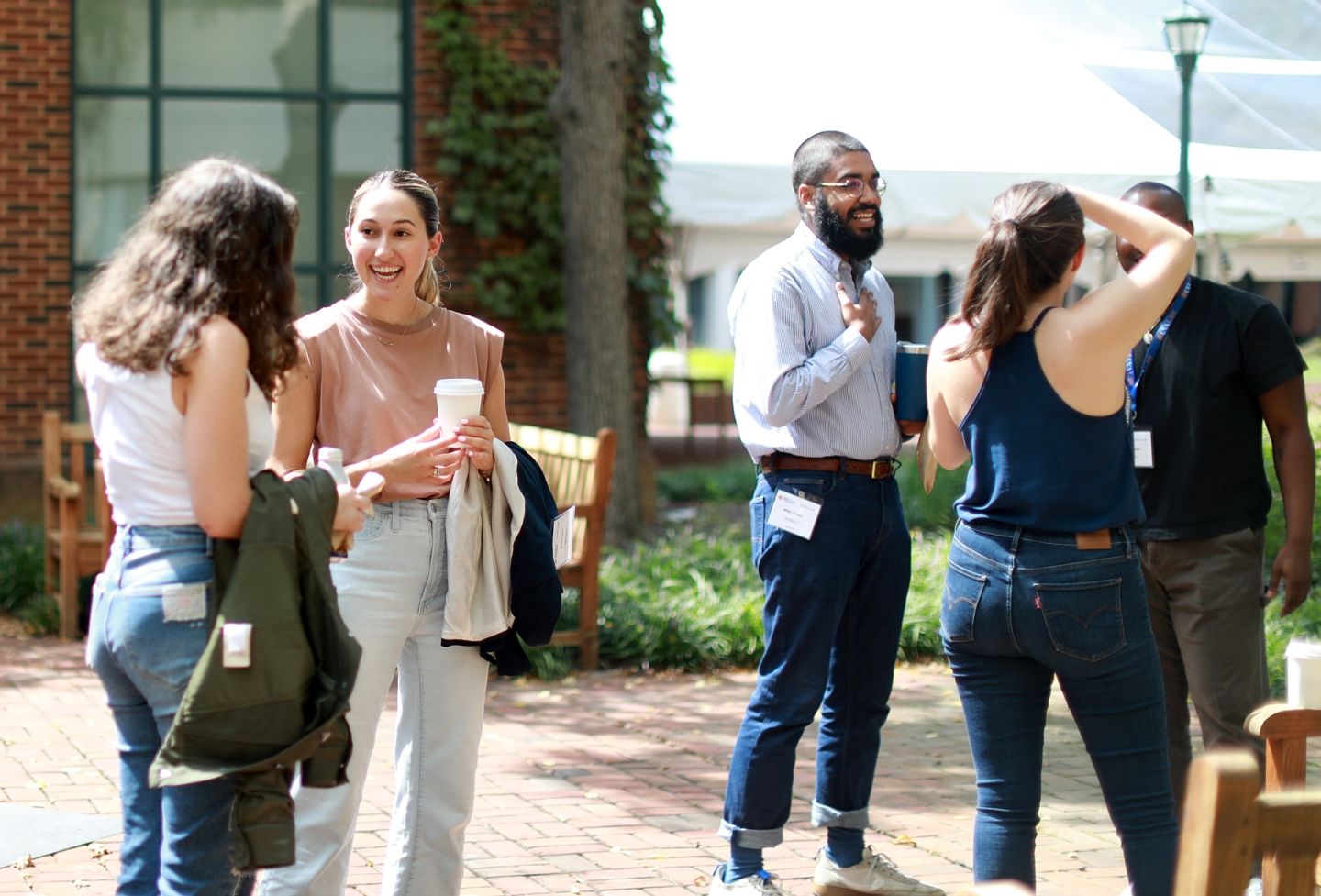
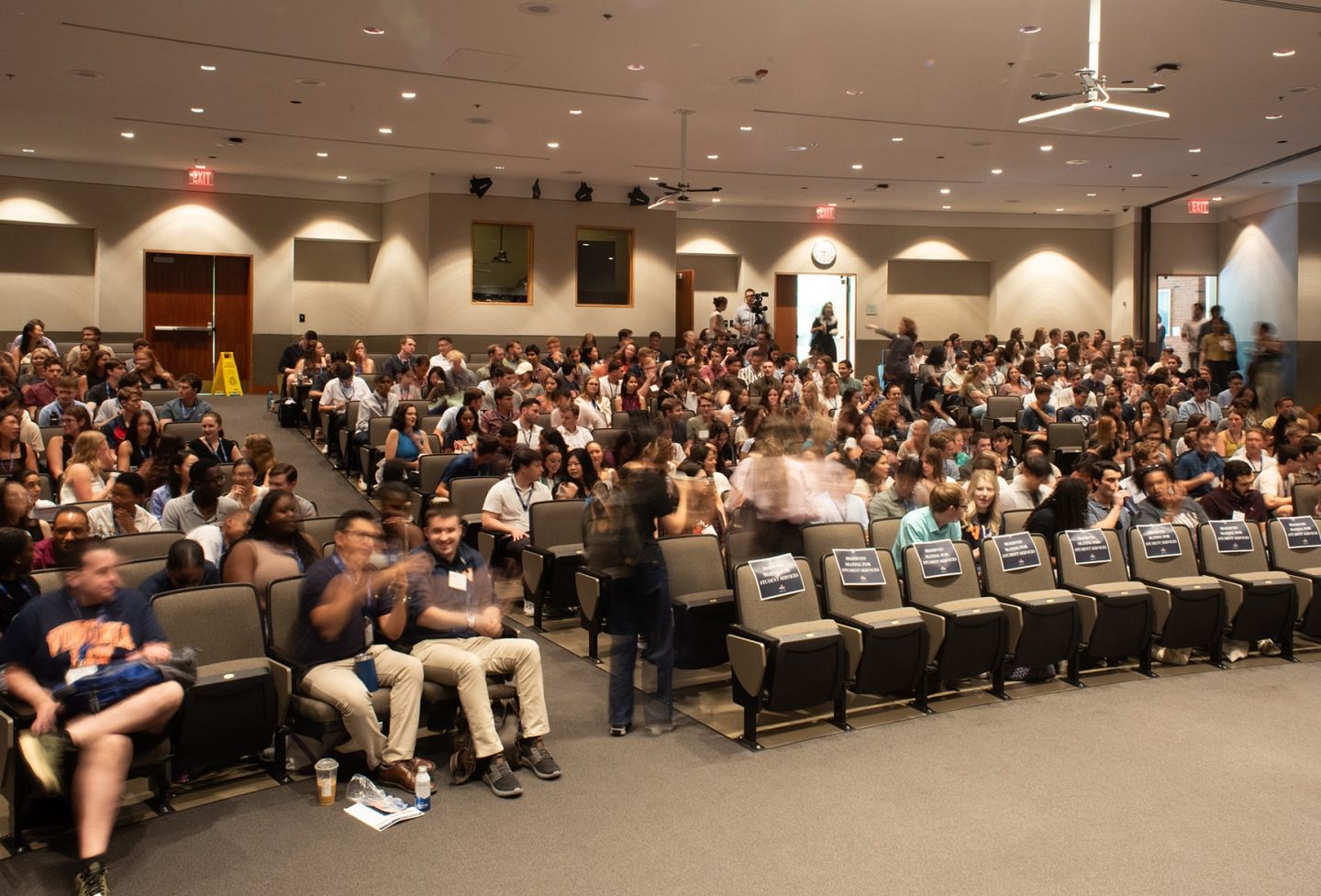
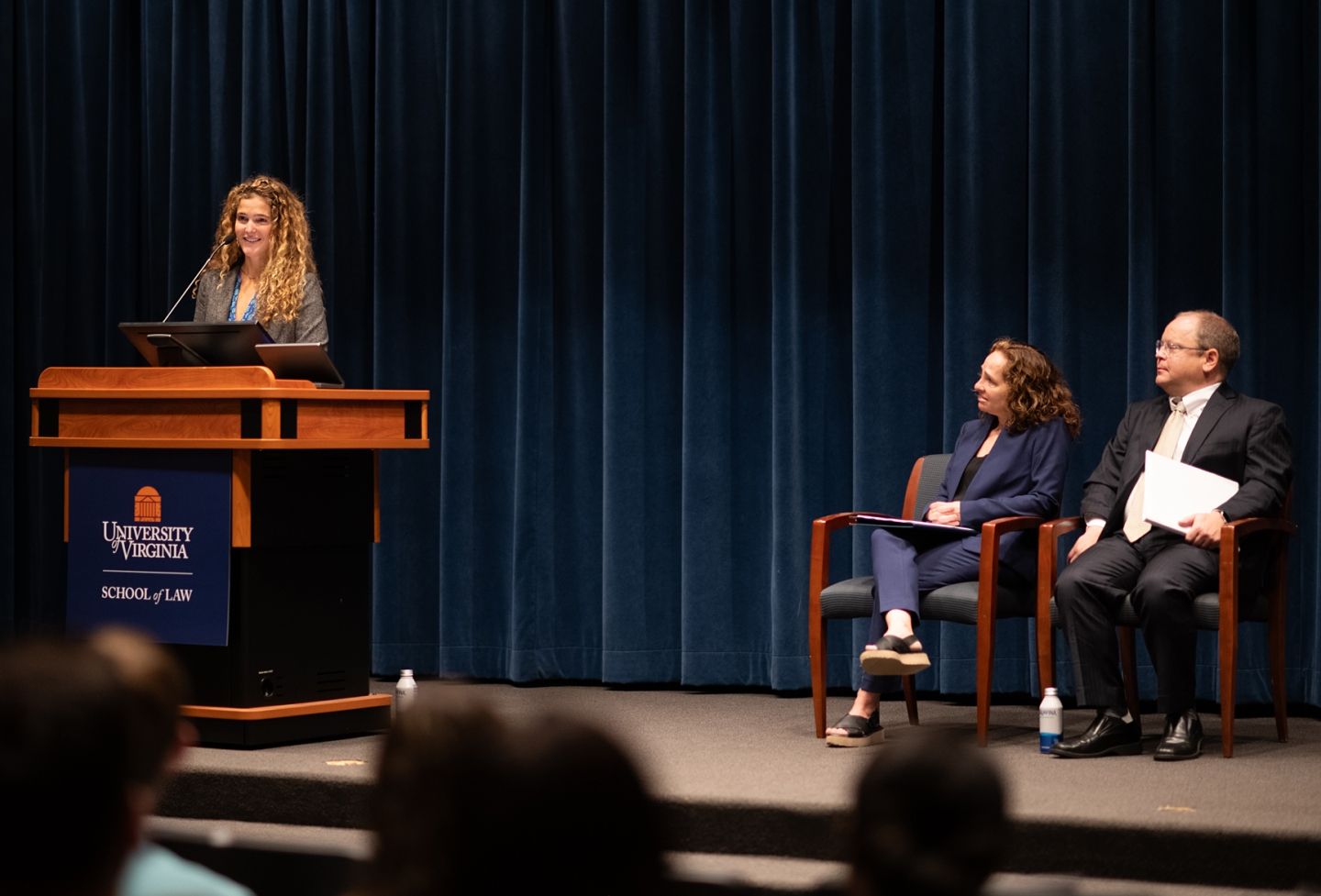
Assistant Dean Natalie Blazer ’08, Dean Risa Goluboff and Judge Toby Heytens ’00
Founded in 1819, the University of Virginia School of Law is the second-oldest continuously operating law school in the nation. Consistently ranked among the top law schools, Virginia is a world-renowned training ground for distinguished lawyers and public servants, instilling in them a commitment to leadership, integrity and community service.


